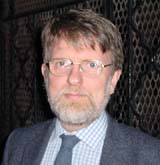A Theorem on Power
The nature of power is such that decisions tend to get passed up the hierarchy to a level where nobody knows or cares what's involved. This partly explains the poor quality of decisions.
A possible objection to the above: But didn't Stalin have a wonderful grasp of detail? I answer: Yes -- the wrong detail. He was an excellent murderer, but a poor governor.
Which leads to a malign corollary: The nature of power is such that those who rise to the top tend to be those who are happy to take decisions on matters they don't understand.
George Santayana defined a fanatic as one who redoubles his efforts when he has lost sight of his goal. The great leader, on the other hand, simply redefines everybody's goal to fit his personal compulsions.
Democracy provides little defence against these ills. People like the smack of firm government.
A possible objection to the above: But didn't Stalin have a wonderful grasp of detail? I answer: Yes -- the wrong detail. He was an excellent murderer, but a poor governor.
Which leads to a malign corollary: The nature of power is such that those who rise to the top tend to be those who are happy to take decisions on matters they don't understand.
George Santayana defined a fanatic as one who redoubles his efforts when he has lost sight of his goal. The great leader, on the other hand, simply redefines everybody's goal to fit his personal compulsions.
Democracy provides little defence against these ills. People like the smack of firm government.

